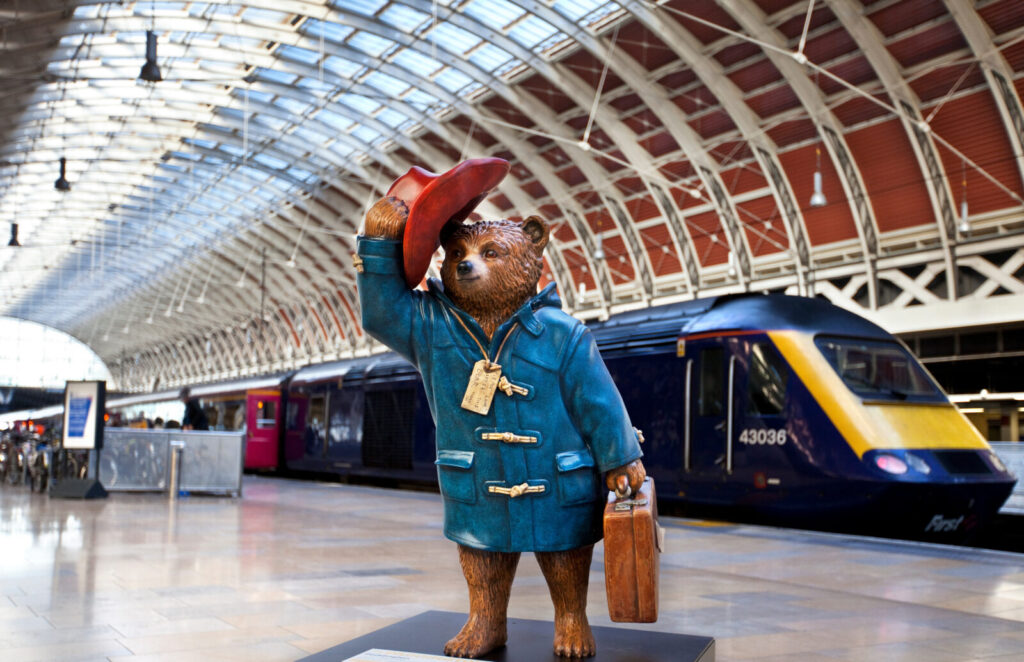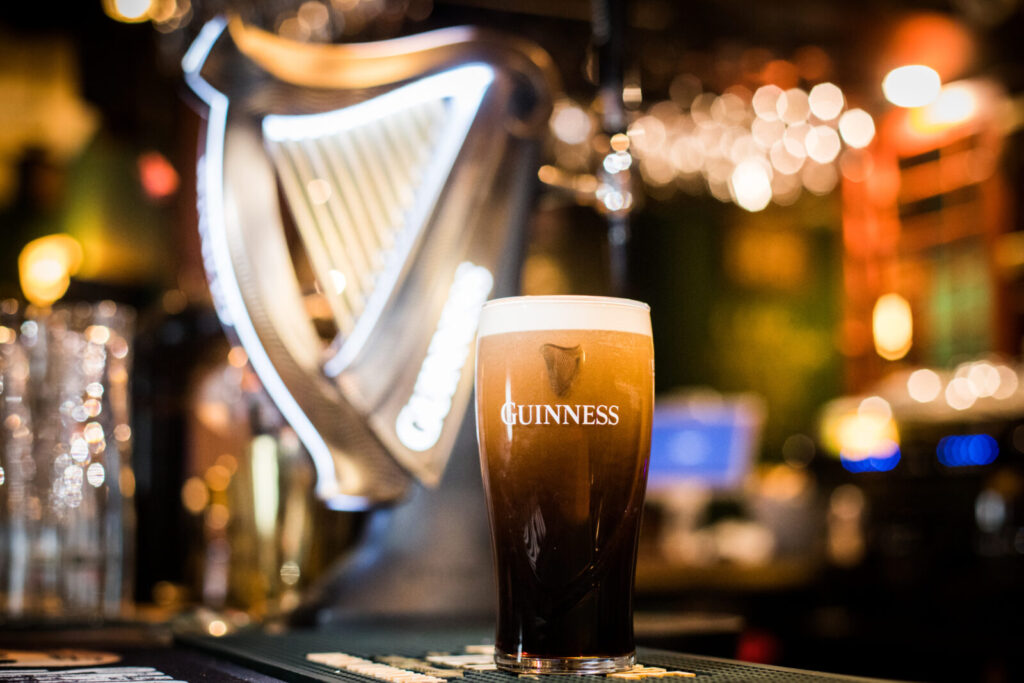Brief • 3 min Read
In The Harris Poll Tracker (Week 81) fielded September 10th to 12th, 2021 among 1,920 U.S. Adults, we look at how families are navigating the vaccine wars, how 9/11 is still the most significant event of the last half-century, how Americans feel about the NFL’s vaccination and ticket policies, why NFTs can create consumer value, and Tiffany & Co.’s latest marketing campaign.
As a public service, our team has curated key insights to help leaders navigate COVID-19. Full survey results, tables, and weekly summaries can be accessed for free at The Harris Poll COVID-19 Portal. We will continue to actively field on a regular cadence to track the shifts in sentiment and behaviors as the news and guidelines evolve.
1. Vaccine Wars Puts Family Ties at Risk
In our latest COVID tracker survey, we asked Americans how the ongoing vaccine debate is affecting their families and relationships, and subsequently, what they are doing in response to having people in their circle who remain unvaccinated. Here’s what we found:
- One-third (33%) of vaccinated Americans report cutting ties in some way with friends, family members, or acquaintances who remain unvaccinated.
- Three-quarters (76%) of vaccinated Americans say they are concerned with the fact that some of their family members are unvaccinated, including nearly half (46%) who are very concerned.
- Two-thirds (67%) have tried to change their family member’s mind, including (41%) who regularly attempt to convince their unvaccinated family members. Millennials (78%) are more likely to attempt to do so than other generations: Gen Z (59%), Gen X (59%), Boomers (64%).
- So How’d It Go?: Four in 10 (41%) said they aren’t willing to reconsider, but found common ground, while one-quarter (25%) say they are receptive and are reconsidering. One-fifth (18%) say the attempt to change their mind “worked” and their family member is planning to now get the vaccine; only (16%) say it started an argument.
- Are the Unvaccinated Just Hesitant or Unswayable?: (46%) of unvaccinated Americans say they are waiting until they feel more comfortable to get the jab but (54%) say they won’t get the vaccine at all.
Takeaway: The vaccine divide is setting out to reshape more than just family relationships; from weddings to workplaces, vaccinated Americans are drawing new, sharper lines around who they choose to spend time with, leading to new social behaviors in the months ahead especially as we approach the holiday travel season.
2. 20 Years Later, the 9/11 Attacks Are Still Seen as the Biggest News Event of the Last Half-Century: Fast Company-Harris Poll
The vast majority of Americans still see the events of September 11, 2001, as the most significant news event of the last 50 years, beating even the global COVID-19 pandemic, according to a new exclusive Harris Poll conducted for Fast Company. Here is what else we found:
- Nearly all (92%) Americans said they were familiar with the events of 9/11, including details such as who carried out attacks, the response by the U.S., and the number of deaths.
- Among people who say they are familiar with 9/11, (87%) agree that the terrorist attacks on the World Trade Center, the Pentagon, and Shanksville, Pennsylvania, were the #1 news event in the last half-century.
- The sentiment cuts across gender and age lines and includes people who weren’t yet born and those who are too young to remember the events. That’s the response of (83%) of men, (90%) of women, and (85%) of Americans ages 18 to 34, which covers a chunk of Gen Zers.
- Many emotional ceremonies took place around the country, ranging from former and current politicians honoring the lives lost on that day to an iconic subway seriesbetween the New York Mets and Yankees where team loyalty was put aside and unity was at the forefront.
Takeaway: For people who didn’t live through the assassination of President John Kennedy, a key marker for Baby Boomers, this was a generation-defining moment. That the 9/11 attacks happened on U.S. soil – and that remained untouched through two world wars and hasn’t seen such fighting since the Civil War – made it all the more dramatic.
3. NFL Favorability at 67% as Fans Back Vaccination, Digital Tickets: Sportico-Harris Poll
Earlier this week, Sportico valued the average NFL team at $3.5 billion – evidence of the league’s monumental financial weight – but while a majority of people like the NFL, not everyone is enamored. Two-thirds (67%) of Americans have a favorable opinion of the NFL, according to a new survey conducted by Harris Poll for Sportico. Here’s what else we found:
- Young fans have a more positive opinion of the NFL than older generations:only (61%) of Boomers have a favorable view, compared to at least (69%) of Millennials and Gen Z. In contrast, NCAA favorability varies little across age groups.
- Political Divide: Democrats (79%) are much more likely to have a favorable view of the league than Republicans (59%) or Independents (57%).
- Two-thirds (66%) of Americans say their NFL or college football team should require vaccination for all fans in attendance at games.
- Public opinion on vaccine mandates has not shifted in the past year: (69%) of people say that the NFL should have made vaccination mandatory for all players and coaching staff, nearly unchanged from January (67%) and June (68%).
- More than three-quarters (76%) of Americans believe the NFL is right in its decision to require paperless ticketing, including (81%) of NFL fans.

Takeaway: Despite not mandating vaccination for all players and coaching staff, some teams are starting to take control of their individual vaccination policies; the Seahawks and Saints will require fans to provide either proof of vaccination or a negative test, while the Raiders will outright require vaccination.
4. 3 Ways NFTs Can Create Consumer Value: R&CMPK-Harris Poll
Everyone is trying to figure out what to do about non-fungible tokens (NFTs), which have been viewed as both a passing fad and a future tool for artistic compensation. Harris Poll CEO Will Johnson writes in AdAge about the strategies marketers can use to increase revenue and awareness of NFTs from our latest survey with R&CMPK:
- NFTs as an incentive for a larger purchase: Our research indicates that NFTs could offer marketers another tool for pushing customers through the funnel, with (30%) of Americans stating they would like to receive an NFT as a gift with a purchase.
- NFTs as commemorative memorabilia to deepen consumer connections: NFTs represent a myriad of options for marketers looking to create unique, commemorative items for specific events. Nearly four in 10 (38%) of consumers aware of NFTs stated that they prefer an NFT over physical memorabilia to commemorate their time at a sports or entertainment event.
- NFTs as additional revenue streams: As opposed to offering an NFT as strictly a purchase incentive or as memorabilia, they are also sellable products themselves. Of consumers familiar with NFTs, (41%) say they are likely to buy one and these potential buyers are most interested in an NFT of a video game asset (34%), artwork (33%), and a social media post or a video (30%).
Takeaway: As digital representations of the modern world with nearly zero creation costs, NFTs provide brand marketers limitless upside potential. The only question that remains is, “What can you digitally dream up next?”
5. Not Your Parents’ Luxury: Watches and Jewelry Brands Lean Into Bold, Diverse Marketing
Historically, luxury brands typically focus on higher income, older consumers. While that works to build long-term loyalty, it does little to draw in new, young shoppers. Some brands are now deploying marketing strategies to revive their brand among younger and more diverse consumers, such as Tiffany’s “Not Your Mother’s Tiffany” campaign. Here are a few highlights from our Harris Brand Platform’s deep dive:
- On average, Millennials and Gen Z viewed the luxury watches and jewelry category as customer-centric, dependable, and practical before Tiffany’s campaign launch, rather than the fun, hip, and visionary perceptions of more youth-focused brands.
- With the new Tiffany campaigns geared towards younger and more diverse consumers, it’s unsurprising that familiarity was also slightly higher among African Americans (66%), Asian Americans (67%), and Millennials (72%).
- Beyoncé appears to be a wise choice as a new brand ambassador among those familiar with the megastar and Tiffany. Within this group, (80%) consider Beyoncé to be a good fit for the brand.
- Boosting brand imagery and purchase intent: Tiffany’s rebrand seems to be succeeding with one in five consumers at least somewhat familiar with Tiffany planning to buy something from the brand in the next 12 months.
- Other real-life partnerships in the industry see success: Citizen Watches currently uses tennis star Naomi Osaka as a brand ambassador and Harris Brand Platform data finds among Gen Z and Millennials, Citizen has steadily improved in its perception as a fun, hip, and bold brand.
Takeaway: Brand revitalizations risk alienating current customers and failing to resonate with new targets. Although Tiffany’s campaign caused resentment among loyal fans, the brand has caught the attention of younger consumers while generating buzz. Ultimately, Tiffany’s tactics to rebrand with controversial marketing and diverse brand ambassadors are a valuable case study for similar brands looking to adapt to an evolving, luxury consumer base.
Subscribe for more Insights
Subscribe to our newsletter for the latest trends in business, politics, culture, and more.
Download the Data
This survey was conducted online within the U.S. by The Harris Poll from September 10 to 12, among a nationally representative sample of 1,920 U.S. adults.
Download
Subscribe for more Insights
Subscribe to our newsletter for the latest trends in business, politics, culture, and more.
Download the Data
This survey was conducted online within the U.S. by The Harris Poll from September 10 to 12, among a nationally representative sample of 1,920 U.S. adults.
DownloadRelated Content








